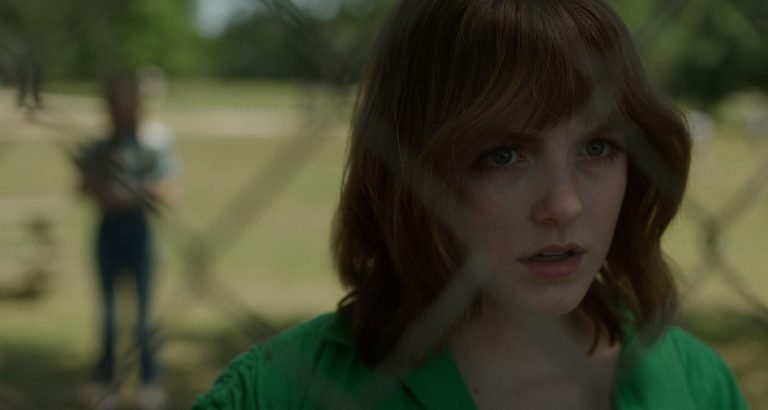The morbid truth behind the original 1994 film adaptation of “The Crow” is that, no matter how entertaining or thematically sound Alex Proyas’s film may be, its legacy will always hang in the shadow of the tragedy surrounding the accidental on-set death of leading man Brandon Lee. The prospect of remaking the film at all has always lingered with a sort of tastelessness that goes even beyond typical Hollywood practices of unmotivated IP exhumation; this might, to an extent, be why Rupert Sanders’s new adaptation of the 1989 comic has been beset with its own series of endless—albeit far less disturbing in the grand scheme of things—production issues.
A film about a reanimated corpse’s sidequest on the road to Hell, bringing down those who should’ve ended up there themselves long ago, The Crow’s biggest brush with a scorching inferno has been its own decade-long sentence in production limbo, with a revolving door of filmmakers and leading men slated to take on this thankless mission. That the film—intended more as another adaptation of the original source material than a retread of Proyas’s and Lee’s ill-fated but retroactively honored project—has finally seen the cold light of day some 16 years after its slow crawl from the depths was first announced is its own minor miracle. But at this point, like Eric Draven himself, everyone involved with a project so obviously dead on arrival will only know peace when this grueling experience becomes little more than a distant nightmare.
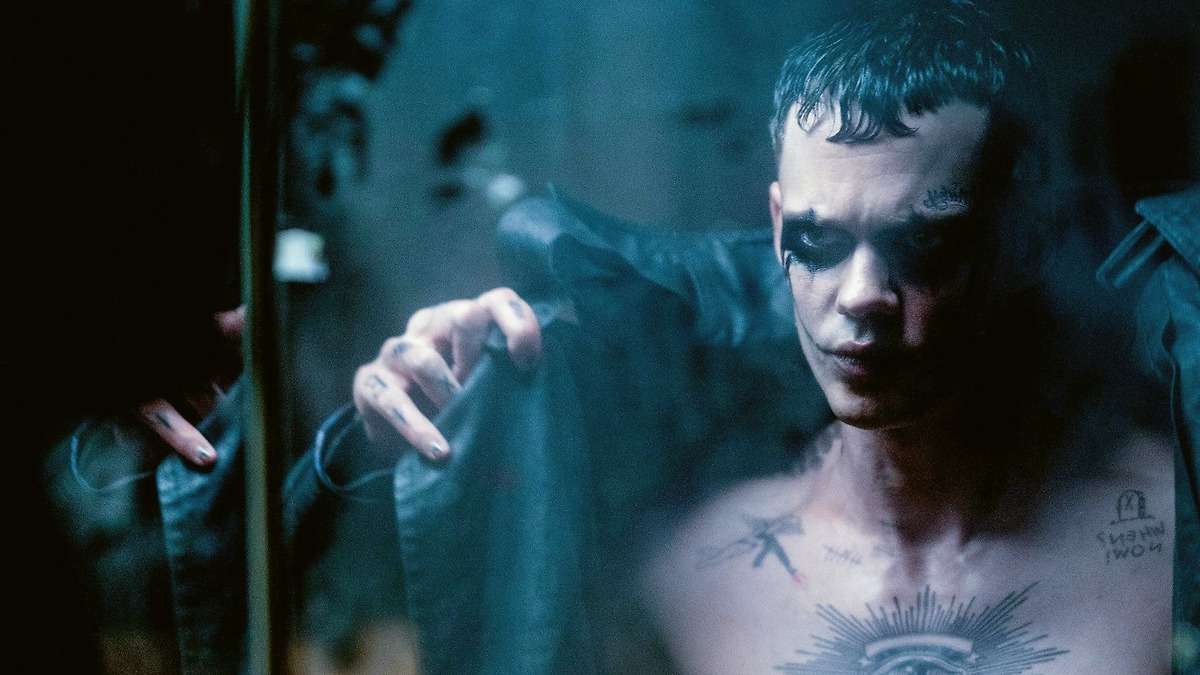
Among the many leading men initially attached to “The Crow” was Swedish hunk Alexander Skarsgård, but while his involvement turned out to be but a rumor, his younger brother Bill—whose leaner physique works far more appropriately for the nimble, scrappy underdog vibe required of this protagonist—proves a passable replacement in the starring role. A burnout whose existence boils down to a series of vacant stares and angsty tattoos, Draven’s stint in a rehab center (basically a full-on prison were it not for its gender-neutral setup) is suddenly given meaning upon the arrival of the mysterious but affable Shelley (FKA Twigs, still searching for a stage name more suited to films than her art pop music career).
On the run from some ominous figures who want to silence her for her possession of some video—the significance of which becomes incredibly stupid once it’s made clear—Shelley’s run-in with Eric proves just the adrenaline boost they both need to bring some new meaning to their catatonic lives. Their brief but scalding romance is, of course, cut short when those vaguely menacing corporate types catch up to them and murder them both. Now Eric, given the power to return from the dead and withstand any physical injury, finds himself tasked with going after those who murdered him and his love, hoping to bring her back from the circles of Hell by sending down the scheme’s grand architect in her stead.
Another promising young actor previously slated to lead this film before his thankful escape was Jack Huston, but in his stead, his uncle Danny appears as the film’s primary villain: a demonic crime figure named Vincent Roeg, whose reason for killing Shelley and (almost) Eric has to do with some vague deal of immortality he has with the devil… or something. Before, the supernatural elements of “The Crow” were largely relegated to the vengeance-driven resurrection of Draven himself, but now, because everything always has to be bigger and more elaborate (and, in this case, dumber), writers Zack Baylin (having a banner year between this and the Bob Marley biopic we’ve all already forgotten) and William Schneider felt the need to toss in some hilariously shoehorned play at satanism to apparently give Eric some form of real challenge to his newfound immortality.
The biggest issue in this respect is the notion that all of this high-concept narrative drudgery takes away from the tangible sense of evil felt in the previous version of this story. In a tale intent on showing the deep-seated evils of the world at large, it should be enough that Eric and Shelley were simply in the wrong place at the wrong time, victims of bloodthirsty attackers with some larger criminal connections, armed with nothing but guns, large numbers and an appetite for destruction. Instead, Sanders orchestrates a pointless and forgettable hierarchy of satanic bullshit that places these subjects as crucial to bringing Roeg’s whole demonic enterprise down.
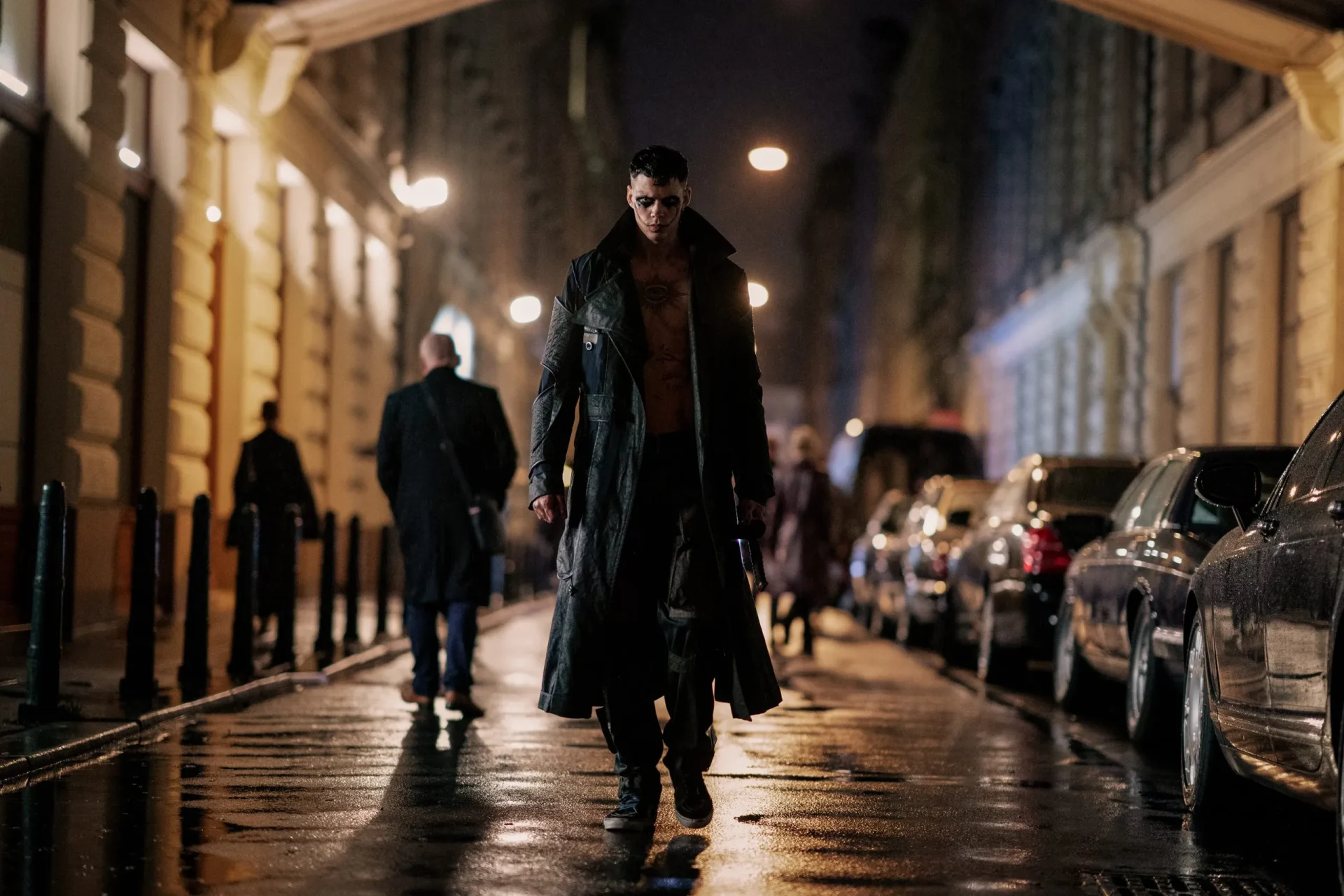
Were Eric and Shelley even tangentially interesting characters—either individually or together—then this “us against the world” attitude could at least have survived some of the narrative’s clunkier execution, but the flatness of Rupert Sanders’s vision, sacrificing real style for shallow allusions to gothic imagery and tone, does little to rescue our two chemistry-free leads. What Proyas and his screenwriters were able to set up from the moment their film began, Sanders and his crew fail to establish with something like 30 minutes of (supposed) character development before the murders even take place. These characters, clearly, serve more as embodiments of concepts like revenge and closure than actual human beings, which might have worked if “The Crow” and its seemingly endless setup weren’t so assured of their own gravity without anything to show for it.
For a film that spent nearly two decades in development Hell—plus a prominent (and, lest we forget, Oscar-nominated) screenwriter whose credits only extend as far back as 2021—it’s strange to see “The Crow,” thanks to all of its shallow gloom and clearly sartorial edge lord aesthetics, come across as something of a lost relic from the early 2010s.
It seemingly birthed from a moment in time when action reboots were all the rage. Films like Colin Farrell’s “Fright Night” or Jason Momoa’s “Conan the Barbarian” (another actor once in contention for this role!) were crawling all over the place, and “The Crow” would no doubt have fit into this moment of history, particularly because nobody, even at the time, saw much value in these cash-grab reboots in the first place. A film whose existence isn’t so much angering as it is confounding in its emptiness, “The Crow” never seems to understand that the resurrection at its core is tied to a profoundly visceral sense of purpose—a purpose the film itself never even attempts to seek.




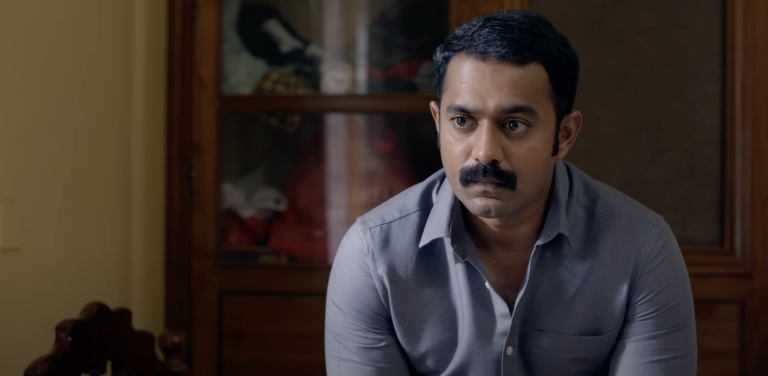

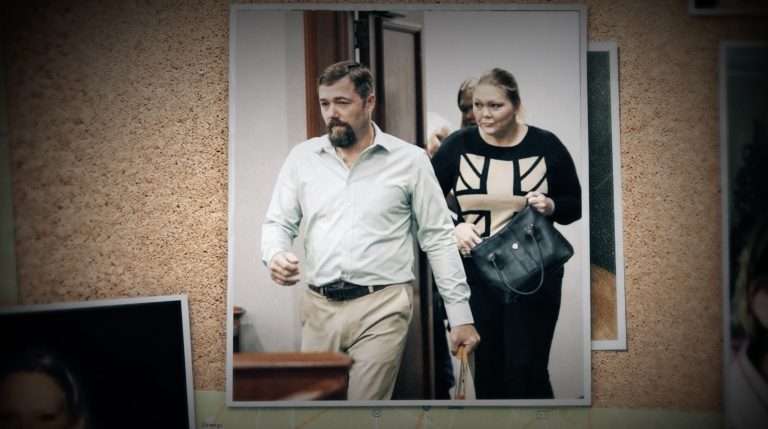
![Tully Review [2018]: A Deeply Empathetic Ode to Motherhood](https://79468c92.delivery.rocketcdn.me/wp-content/uploads/2018/08/tully-768x512.jpg)
